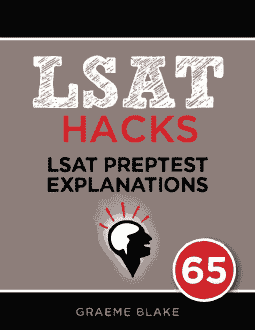This is an explanation for passage 2 of LSAT preptest 65, the December 2011 LSAT. This passage is about the difficulty of preserving information in the modern age.
This section has paragraph summaries and an analysis of the passage, links to the explanations for the questions are below.
Paragraph Summaries
- We have more information than ever, and it’s harder to preserve.
- Computers might help, but file types keep changing.
- There’s a lot of information, and it’s deteriorating quickly. We won’t have time to decide what information is worth saving before it starts to disappear.
Analysis
This passage describes a serious issue. We have a lot of information, and it’s disappearing.
The passage has a clear structure.
- Information is disappearing faster than ever.
- Computers are tricky, because file types change.
- Lastly, information is vanishing so rapidly that we won’t be able to save all of it or even decide what is important to save.
Most of the questions involve details. To solve this passage effectively, you should have a clear grasp of the information in the passage, and be able to locate line references quickly.
I’m not going to repeat all the passage’s information here, but the answers have line references to all the relevant information.
I will discuss the main themes. It’s important to know what archivists do. They sort through all the information that we have, and decide what to keep.
Much of what we know about the past is thanks to past archivists. For instance, some people decided to save the works of Plato, and not other authors. So we know more about Plato. But as the passage mentions, we almost lost the works of Plato, too.
Today we have more information than ever, and it’s getting harder to store. In the past, there wasn’t that much information, and it lasted a long time. We have some paper that’s thousands of years old.
Contrast this with technology. I’ll bet there are some floppy disks in your parents’ basement that you can no longer run. I personally have some Wordperfect files on my computer that I can’t open. Remember wordperfect? It was still popular in 2001. Now there’s nothing I can do with those files.
So all of our new storage methods can have short shelf lives. But at the same time, we’re producing more information than ever. Think about everything you’ve seen on the internet today. Will future historians be able to access it? Will they be able to access this book that I’m writing?
Archivists thus face a difficult task.
- There is more information than ever.
- Much of it is unimportant.
- Information is being destroyed rapidly.
These difficulties are the theme of the passage. Each paragraph gives specific details. As I mentioned, the best way to answer the questions is to know where to look to find specific details.
Note that computers are both part of the problem and the solution. Computers are what have allowed us to produce so much information. But lines 36-40 offer hope that computers might finally allow us to store things for the long term.


Leave a Reply